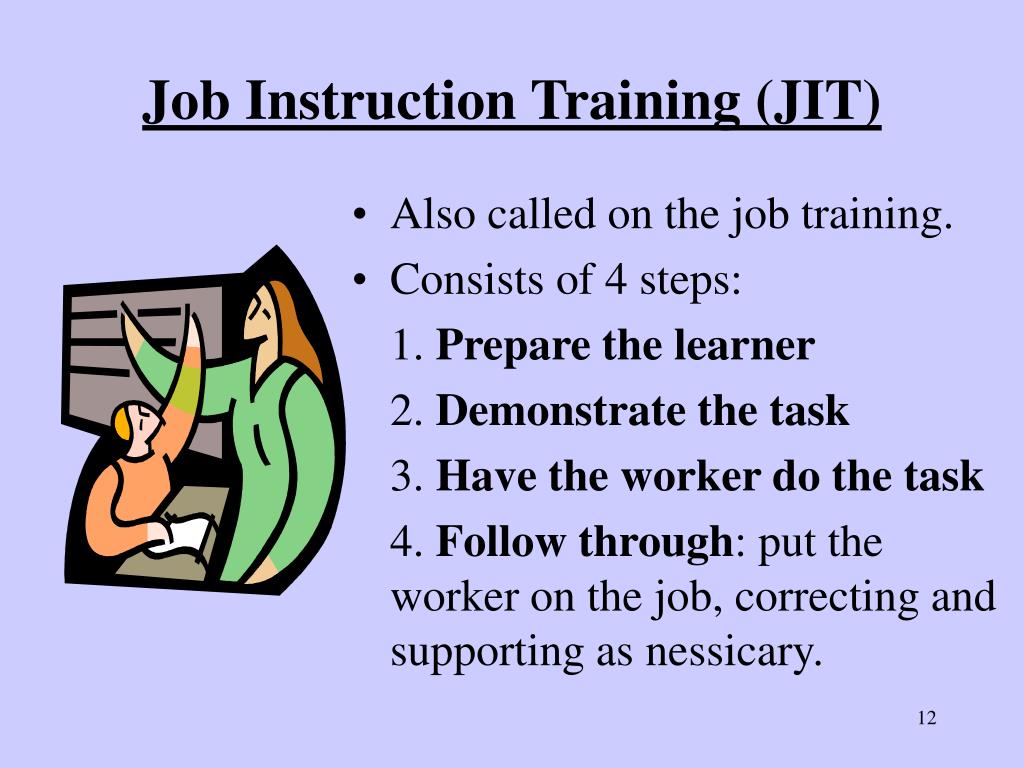Training Edge : Discover Your Future
On the Job Training Undertaken Internships in Organizations: 700+ Corporate Etiquettes Off the Job Training
"The most successful are the most prepared and the most prepared are the most dedicated."
Training: The extra step
Training is a planned process through which knowledge; skills, abilities, attitudes and behaviour of trainees are developed, modified, improved, and sharpened for desired job performance, career progression or human development. It can also be defined as,” the planned process to modify attitudes, knowledge, skills, behaviour etc. through learning to acquire effective performance in an activity or range of activities.” In other words, training is the art of learning with emotions. It is the acquisition of knowledge, skills, and competencies as a result of the teaching of vocational or practical skills. JEC, through learning to listen, coaching caring and counseling humanities and engineering programs ensures that the students get trained by the best companies which are committed to the effective selection and development of the students' talent. In addition to it, the college provides in-house training from the very basics of communication to attitude building and motivational activities to endow the students with an overall development.
Objectives of Training Edge JEC:
The prime objective of the Traininga are
- To look for 100% employment for all students.
- To recognize the core competencies of the students.
- To train the students to meet the expectations of the industry and skill needs
- To build confidence in students and develop right attitude in them and
- To enhance their communication skills and develop their personality.

Training Activities :
- Create awareness about “career planning" and "career mapping" among the students.
- Equip the student with life skills.
- Train the students on “Personality development".
- Organize Various Training Programmes to train the students in the areas of Quantitative Aptitude, Logical Reasoning and Verbal reasoning through the reputed external training organizations and in-house trainers.
- Train the students through Mock Interviews to perform well in the professional interviews as per the expectations of the corporate world.
- Train the students on group discussion techniques
- Conduct online tests and written aptitude tests.
JEC has well structured training path to spark success into minds of students. To cultivate the culture of winning ability, Online practice sessions are conducted for students to upgrade their aptitude and technical skills round the year with earmarking from basics to advanced and relating them with first Year to final year students.
| Training Schedules | I Year | II Year | III Year | IV Year |
|---|---|---|---|---|
| Communication |
|
|
|
|
| Behavioural |
|
|
|
Time to time just before campus drive |
| Aptitude | Basic Mathematics | Moderate Questions & General Awareness (Practice) | High level questions & General Awareness (Practice). | Mock Tests |
| Technical | Basic Science | Technical test | Brushing up sessions with Mock Tests. | Technical PPTs, GDs & Tests |
System Approaches
Jaipur Engineering College puts systems approach to training to make it cutting edge. As an institution JEC’s systematic training consists of several sequential steps which are as follows:
- Assessing Training Needs
- Establishing Objectives & Criterion
- Identifying Resources for Training
- Developing Content & Curriculum
- Selecting Methodology
- Providing Training
- Helping Transfer of Learning
- Evaluating Training-Effectiveness
To make the training a training edge & more significant, JEC combines methods of techniques of training are employed whether they are on-the Job techniques or off-the Job Techniques
Job Instruction Method:
JEC places the trainee directly on the job under the care of his immediate supervisor. This training is carried out in five steps: First, the supervisor-trainer of JEC explains to him the basic nature of the job, rules, procedures, methods, ‘dos’ and ‘don’ts ‘ etc. Second, the supervisor demonstrates to the trainee , step-by step, how the work is done, explaining every step carefully. Third, he makes the trainee practice the work in front of him repeatedly, guiding him every time when he falters because of lack of confidence or skill. At the fourth step the supervisor allows the trainee to perform simple routines at first at his own and then more difficult operations in his guidance. Lastly, the supervisor leaves the trained student free under his guidance and occasionally checks his progress and gives him more practical tips.

Vestibule Training:
In this method, the trainees, before being placed on the job, are trained, in a training-workshop attached in JEC or any corporate sector or industry. This training is done on almost on identical equipment, but by trained faculty. Student find this training more systematic and complete because it moves on the principle of progressive learning, i.e. first learn the first step and then only move to the learning of the second step. This gives greater satisfaction and confidence to the trainee and saves costly equipment from misuse.
Job Rotation:
JEC conducts training in which a student is moved systematically from one job to the other job, in such a manner that he learns and masters the nuances of different jobs of the same order and level in the same department or in different departments. This training gives him a wider exposure, develops in him multiple skills, allows management to use his services in different department on different jobs, and prepares him to assume supervisory responsibility for all the jobs he learnt during training. This is in real terms a Training Edge.

Internship Training:
In this system a new student is ‘tutored and mentored’ by an experienced faculty and lab instructor explaining the intricacies of the job for a considerable period of time. Then the student is sent to the industry for internship as prescribed by the apex bodies. In this training, JEC’s first emphasis is on the development of right attitudes and aptitudes and then on the intricacies of the trade and lastly on developing creative genius in the trade.
Coaching and Counseling:
To make students ready to be inducted in the job field from the day one, the management of JEC takes extra care through coaching and counseling of students by involving senior faculty and experts from outside to make them a better fit at the job and for improving their job skills and abilities.

Case Study Method:
JEC provides written description of an actual situation in business which provokes, in the student, the need to decide what is going on, what the situation really is, or what the problems are, and what can and should be done. Taken from actual experience of organizations, these cases represent attempts to describe, as accurately as possible, real problems that managers face. Trainee students are allotted the cases to study and determine problems, analyze causes, develop alternative solutions, select the best and workable solution, then debate and defend their choices.
New Life after Training
As a final point, JEC believes that good human resource management is about nurturing and developing people. In a technical learning, like industry, banking and finance, great student service, to provide quality training with cutting edge technologies, is the cornerstone in achieving high levels of product in the form of promising trend setting professionals in the years to come.
JEC has been a leader in training the next generation of creative thinkers who will pioneer new technologies, launch businesses and bring needed solutions to many of the greatest challenges facing humanity.
